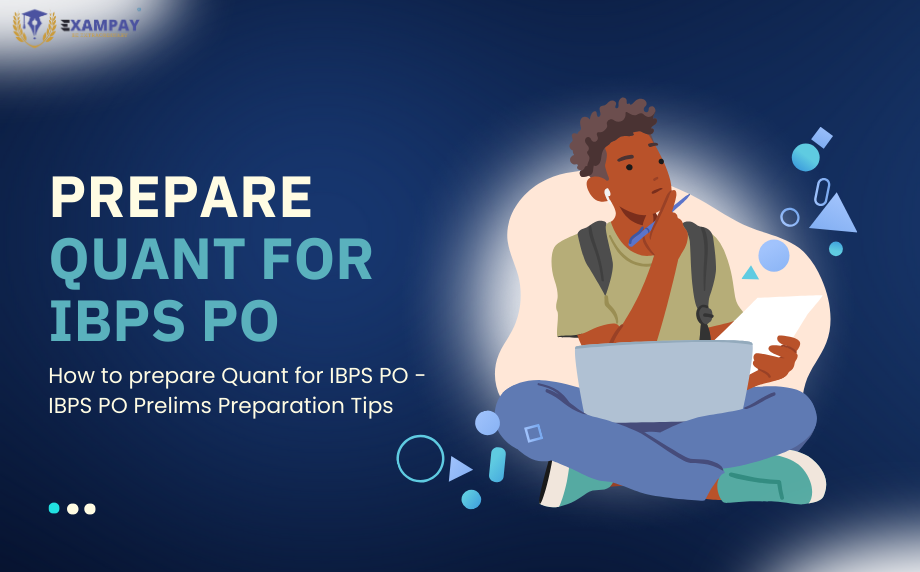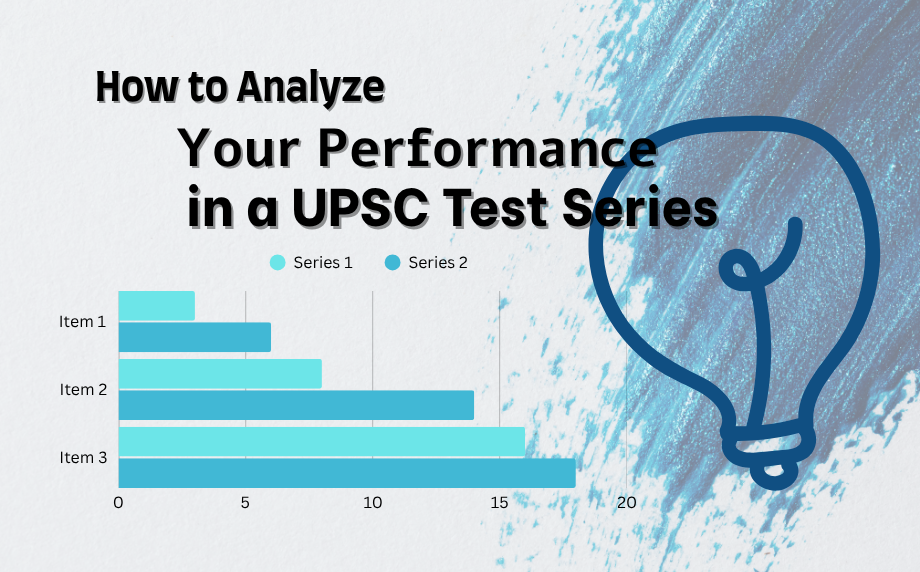The IBPS PO examination is coming closer and the first phase, which is the preliminary examination, will be held on October 19 and 20, 2024 as per the official notification. Quantitative Aptitude is one of the trickiest sections and performing well in this section can help anyone to secure a very good rank in the upcoming IBPS PO examination.
In this article, we will be discussing the tips candidates can use to score well in the IBPS quant aptitude section. We are going to cover the details of important sections and the time durations, which can be helpful to all the candidates in strategizing their time management well. Read till the end to get the answer to all your queries.
IBPS PO Quant Preparation – Know the Syllabus:
Candidates who have applied for the IBPS PO 2024 exam must be already aware of the syllabus and pattern. Let us have a quick look at the different topics asked in the exam and their respective weightage first. Then this will help you channel your preparation and align it in the right direction.
- Quadratic Equation
- Data Interpretation
- Simplification/ Approximation
- Work & Time
- Speed, Time & Distance
- Number Series
- Profit & Loss
- Permutation & Combination
- Simple & Compound Interest
- Probability
- Ratio & Proportion
- Mixtures & Allegations
- Data Sufficiency
- Quantity Based Problems
Before you go through the preparation strategies we give here, make sure you are completely familiar with the syllabus. This will help you to know what exactly to expect.
IBPS PO Quant Preparation – Divide Different Topics:
For IBPS PO Quant preparation, knowing which topic has what weightage will allow you to categorise questions into those that need intense practice and those that do not need such intense practice. Moreover, you can also systematically decide which topics are hard for you and need to put in more effort.
While preparing, as will be understood by the tips below, there are too many topics in the IBPS PO Quant section. Therefore, what you have to do is practise the questions in a particular order. The order will be in such a way:
- More weightage + Easy Questions
- Time Consuming + Easy Questions
- More weightage + Difficult Questions
- Time Consuming + Difficult Questions
Expected weightage from each topic in IBPS PO Prelims 2024:
| SECTIONS | Expected number of Questions |
| Data Interpretation | 15-20 |
| Number Series | 0-5 |
| Probability | 0-5 |
| Comparison of Quantities | 0-5 |
- Remember that there is a negative marking. Every wrong answer will deduct 0.25 of the marks assigned to the quotations from your paper.
- Give each section equal preparation time since sectional timing was introduced last year.
IBPS PO Quant Preparation for Easy Topics:
1. The topics which can be considered easy are:
2. Simplification, Average, Percentage, Ratio & Proportion, Interest, Profit & Loss.
3. All the topics mentioned above are very scoring in nature.
4. In terms of solving, all those topics are less time-consuming.
5. Therefore, more accuracy is possible in the questions devoted to these topics.
Strategies:
Simplification:
- Start targeting these questions early while you are preparing.
- Concepts are easy to understand so you should keep yourself familiar with them.
- Practise quick mental calculations to save time while solving.
- Try using short tricks and techniques for faster calculations.
- Practise a mix of problems on the BODMAS Rule, Approximations, Squares & Cubes, Surds & Indices, Decimals, and Percentages.
Average, Percentage, Ratio & Proportion, Interest, Profit & Loss:
- Begin with basic topics such as averages and percentages.
- Practise standard formulae to increase your conceptual understanding.
- Go through tricks, formulae, and shortcuts that are helpful in these topics of Quant.
IBPS PO Quant Preparation for Moderate Topics
- The moderate topics are: Number Series, Data Interpretation, Number System, Linear and Quadratic Equations, Data Sufficiency, and Problem on Ages.
2. These topics are not too hard if the steps are followed carefully.
Strategies:
Number Series:
- These questions are easy and quick to solve.
- However, learning different approaches to solve this topic needs constant practice.
- Solve around 100 questions of Number Series on different patterns.
- Your confidence increases after your familiarity increases.
- Data Interpretation –
- Daily practice is a must for Data Interpretation questions.
- Do 1 set of each Table, Pie Chart, Line Graph, Bar Graph, and Miscellaneous questions involving word problems every day.
- Quadratic Equations –
- These topics can be solved accurately due to knowledge of concepts.
- So practise around 100 questions on this particular topic.
- With an increase in practice, you can increase your conceptual understanding.
- Do not ignore these topics.
IBPS PO Quant Preparation for Difficult Topics:
- The topics include: Permutations & Combinations, Probability, Speed, Time & Distance, Time & Work, Mensuration, Mixtures & Allegations. There are relatively fewer chances of solving them correctly.
- They also take more time to solve.
- However, practice is the key to these topics.
Strategies:
- Do 2-3 sub-topics every week.
- Moreover, in Permutations & Combinations, properly do arrangements of letters of a word.
- In Time, Speed & Distance, do your problems on Trains, Boat & Streams, and Average Speed.
- In Time & Work, questions on Work Efficiency, Wages, and Pipes & Cisterns should be stressed.
- Try at least 50 problems of each type.
- In Mensuration, do topics involving Cubes, Cuboids, Square, Rectangle, Cylinder, Sphere, Circle, Semi-circle, Cone, etc.
Recommended Books for IBPS PO Quant:
Picking the right book is crucial in any examination preparation. Candidates are advised to pick 1 to 2 good books rather than several books at once.
Some of the suggested books for the quant section are:
| Book Name | Author/Publication | Key Features |
| Quantitative Aptitude for Competitive Examination | RS Agarwal | This book contains all the topics that are asked in the competitive exam |
| Quicker Maths | M Tyra | This book is not only to acquaint the students with various types of problems given in the examinations and how to solve them but also to teach the students effective ways to tackle each of the problems faster and more effectively. |
| Quantitative Aptitude Test | NK Singh | This book contains quick and shortcut methods to solve questions and also questions from the past 10 years. |
| Fast Track Objective Arithmetic | Rajesh Verma | This book covers all the necessary elements required to master the Arithmetic concepts. It has level graded exercises namely: Base Skill Level and Higher Skill Level. |
General Tips for IBPS PO Quant:
- The cut-off of the IBPS PO examination is increasing every year. So, to ensure a very good score in the Quant section, candidates need to solve previous years’ papers and practice regularly.
- As the examination is time-bound, candidates need to be very efficient in mental calculations. Try to learn to speed maths techniques to solve the questions of the quant section.
- Apart from all the tips given above, candidates should also solve a lot of mock tests, both sectional and full-length. It will provide them the chance to analyse their exam preparations and will help them to time their sections well.
Conclusion:
With the right strategy and approach, the candidates can easily clear the IBPS PO examination. Prelims are all about speed and accuracy. The Quant section is a crucial part of this examination so it’s really important to pay full attention and be sincere with the practice.
Once you ace the quant section, it will be a bit easier to qualify for prelims. So it’s really necessary to understand the demand of the Quant section and prepare accordingly.
All the best for your examination!







